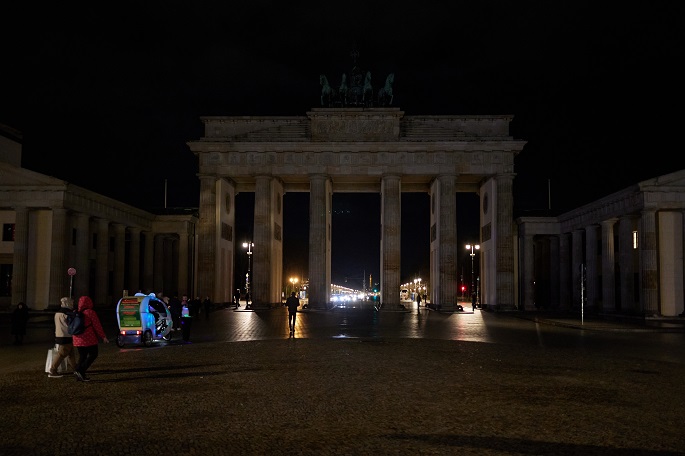Monuments around the world go dark to mark Earth Hour
Published : 24 Mar 2024, 19:46
Monuments across the world went dark on Saturday to mark the worldwide Earth Hour event.
Among them was the Brandenburg Gate in Berlin where the lights went off as part of a global movement that encourages nations to switch off their lights at 8:30 pm local time for an hour to bring attention to the issues of nature loss and climate change.
In Germany, alongside highlighting environmental issues, the event sought to comment on the political climate.
"The current zeitgeist is tense. Crises, conflicts and wars are keeping people very busy," said Viviane Raddatz, Head of Climate at WWF Germany, in the run-up to the event.
"This year, we want to use Earth Hour as a moment for each other, for our planet, and show that we are united: We stand up for more climate protection, for mutual respect, for democracy."
She said this year's darkening of the monument was a way of taking a stand against a shift to the right and associated denial of climate catastrophes.
Many in Germany are taking a firmer stand on political issues, showing their support for freedom and democracy, after a report revealed far-right plans to organize mass deportations of Germans with foreign roots.
Several hundred cities in Germany were planning to switch off the lights in support.
Other monuments worldwide from the London Eye and the Eiffel Tower to the Sydney Opera House and the Empire State Building in New York were taking part in Earth Hour.
This year's campaign began in New Zealand, with Auckland monuments including the Sky Tower and Harbour Bridge and Wellington's parliament buildings going dark at 8:30 pm (0730 GMT).
Now in its 18th year, coordinator WWF International is also asking people to contribute to "Give an hour for Earth," and spend 60 minutes doing something positive for the planet.
Director general Kirsten Schujit said in 2023, over 410,000 hours were given to our planet by supporters in 190 countries and territories, representing 90% of the planet.
"It's crucial to get involved, if we want to raise awareness about the environmental challenges and bend the curve of biodiversity loss by 2030," she said.
"Protecting our planet is a shared responsibility and it demands collective action from every corner of society."
The initiative began in 2007 in Australia and has seen entire streets, buildings, landmarks and city skylines go dark.


